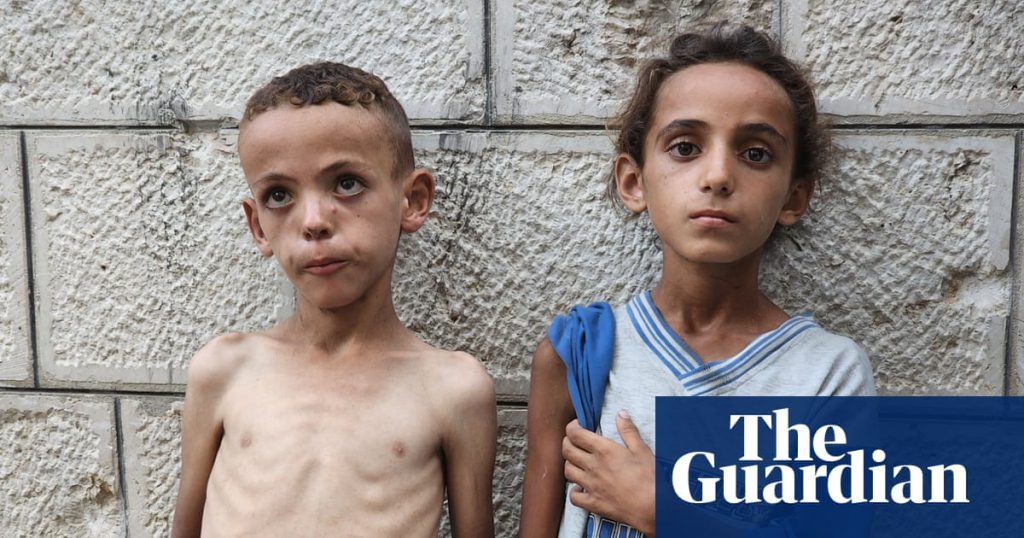Desperate Situation in Gaza
Seven-month-old Mohammed’s frail body, dressed in a romper emblazoned with a cheerful emoji and the phrase “smiley boy,” starkly contrasts with the grim reality of his condition at a Gaza hospital. He spends most of his days crying from hunger or nibbling at his own thin fingers.
At a mere 4kg (9lbs), this is Mohammed’s second hospital visit for treatment. His face is gaunt, limbs are skeletal with loose skin, and his ribs are painfully visible.
“My greatest fear is losing my grandson to malnutrition,” expressed his grandmother Faiza Abdul Rahman, who herself suffers from dizziness due to inadequate food intake. Just yesterday, she managed to eat only a small piece of pitta bread that cost her 15 shekels (£3).
“His siblings are experiencing the same severe hunger. Some nights, they go to sleep without any food,” she added.
Mohammed was born healthy, but his mother was unable to produce breast milk due to her own malnutrition, leaving the family to rely on just two cans of baby formula since his birth.
The ward at the Patient’s Friends Benevolent Society hospital is cramped with other malnourished children, some sharing the 12 beds available. With only two pediatric teams left in Gaza City, up to 200 children seek treatment daily.
Dr. Musab Farwana dedicates his days to attempting to save these children and returns home to share meals that are too small for his own hungry children. He struggles to provide for his family as his salary buys almost nothing, and he is reluctant to risk the dangerous food distributions due to recent incidents involving aid workers.
Despite continuous warnings, the situation in Gaza has deteriorated incredibly over the past two years of conflict. Recent reports indicate 43 hunger-related deaths in just three days, highlighting the desperation and starvation affecting the populace.



